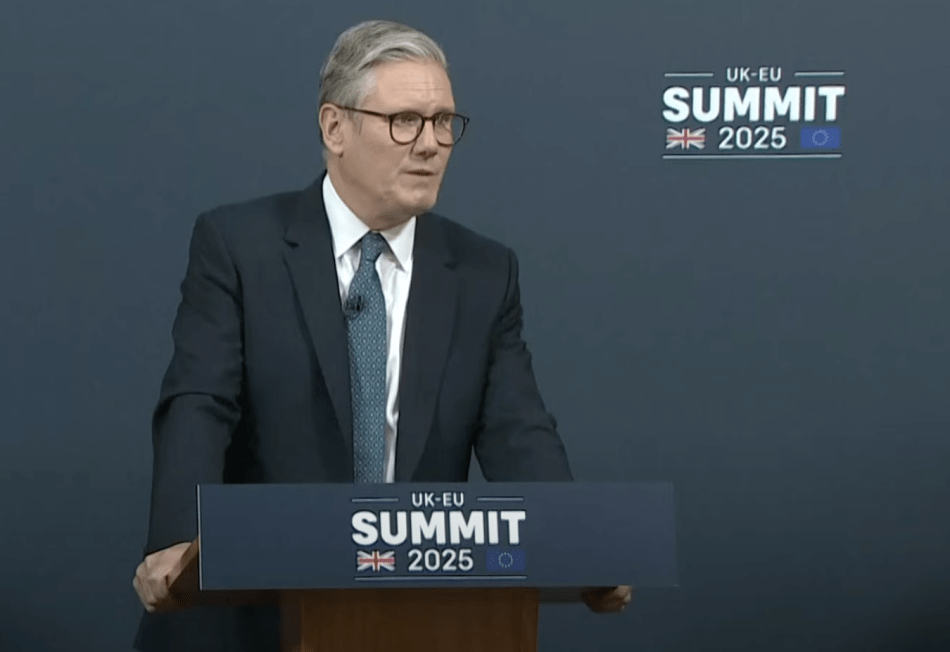Keir Starmer has just wrapped up his press conference with European Commission chief Ursula von der Leyen. The Prime Minister sought to bang the drum for his EU reset, citing his three ‘driving principles’: more jobs, lower costs and enhanced border control. Starmer boasted that his deal ensures ‘unprecedented access to the EU market, the best of any country outside of the EU or Efta’, while ensuring Britain remains outside the single market and customs union, with no return to freedom of movement.
The text of today’s agreement is still being scrutinised – yet the risk is it ends up pleasing neither Remainers nor Brexiteers. Both the UK and EU have agreed to ‘work towards’ a youth mobility scheme, but there is no detail on a cap or timeframe. Britons will be allowed to use e-gates in the EU but the language is caveated, suggesting they are only to be used ‘where appropriate’. The much-vaunted defence pact agrees only to ‘swiftly explore’ UK access to the £150 billion EU rearmament fund. Both sides will work towards the UK rejoining the Erasmus scheme, enabling British students to study in the EU and vice versa.
There is much in the deal that we do not yet know
There are three aspects of this deal that could provoke a significant political backlash. The first is the end of checks on agricultural exports from the UK, providing there is ‘timely dynamic alignment’ with EU rules and standards. Britain can ‘contribute appropriately’ to the formulation of rules and standards – but it has no right of veto. The second is on fishing: the EU will be given ‘full, reciprocal access’ to UK waters until June 2038 – a period three times longer than the four-year deal many commentators thought likely. The third is the emissions trading scheme, which risks handing the EU control over UK industrial policy.
The scepticism of the attendant press pack at Lancaster House was evident in the questions they asked. The Prime Minister was asked, variously, if he was ‘backsliding on Brexit’, ‘selling out the fishing sector’, enabling the ‘worst of all words’ and ‘stitching up’ the UK ‘like a kipper’. A touch of irritation crept into Starmer’s tone as he jibed that most of those criticising the deal ‘came out against it’ before even reading a word. He cited British supermarkets welcoming the deal, arguing it guaranteed business stability and lower prices.
The skirmish was a taste of what is to come later this week. There is much in the deal that we do not yet know. The food standards agreement requires an ‘appropriate financial contribution’: how much might that cost? Will British gene-edited crops be allowed under EU dynamic alignment? How many Europeans can come under the youth mobility scheme? Can the UK access the records of EU law enforcement agencies? Signing the deal is one thing; selling it is quite another.







Comments